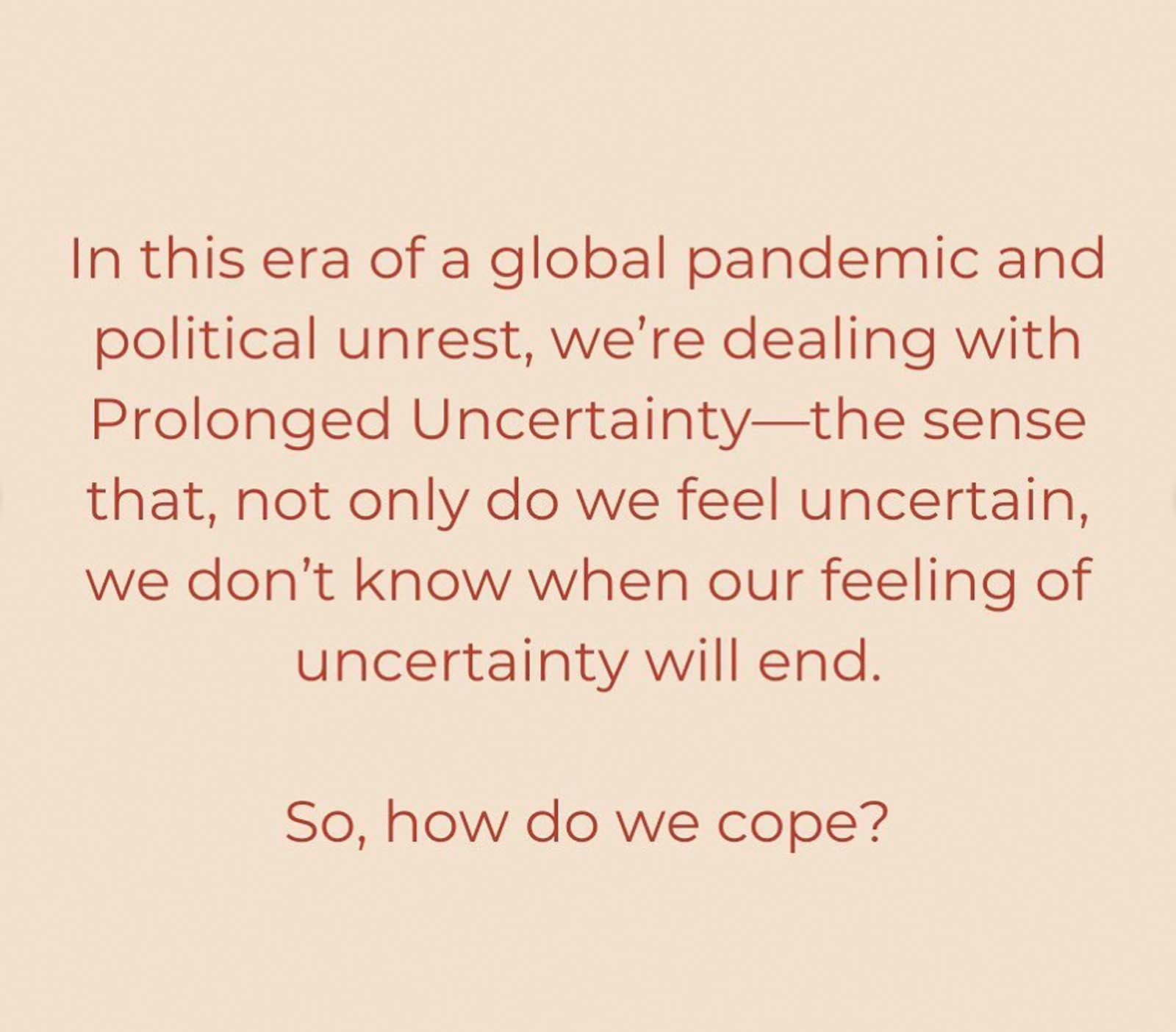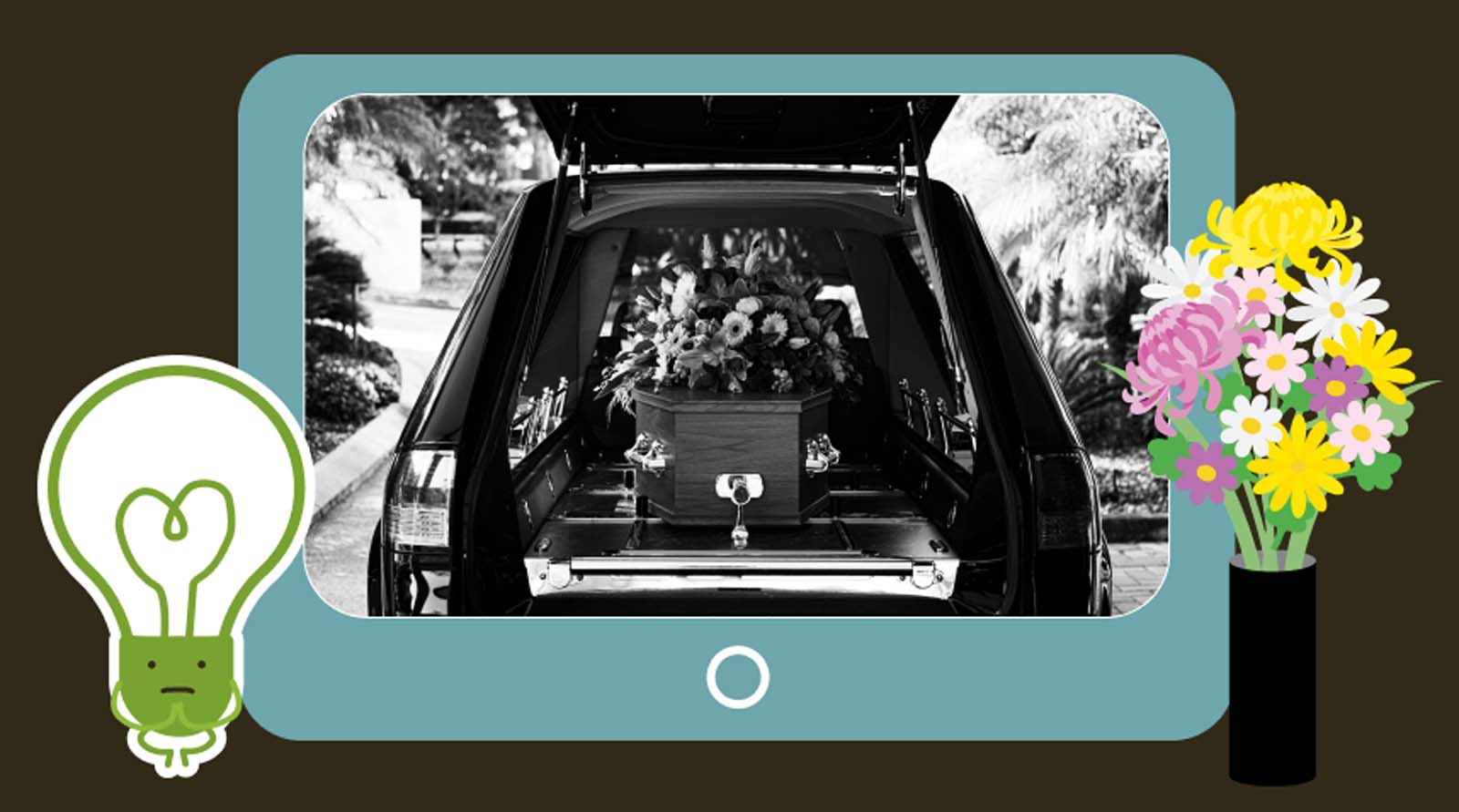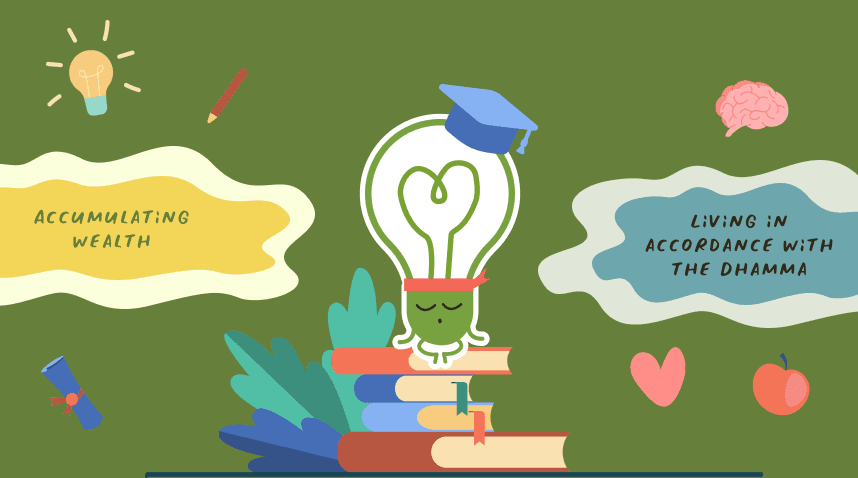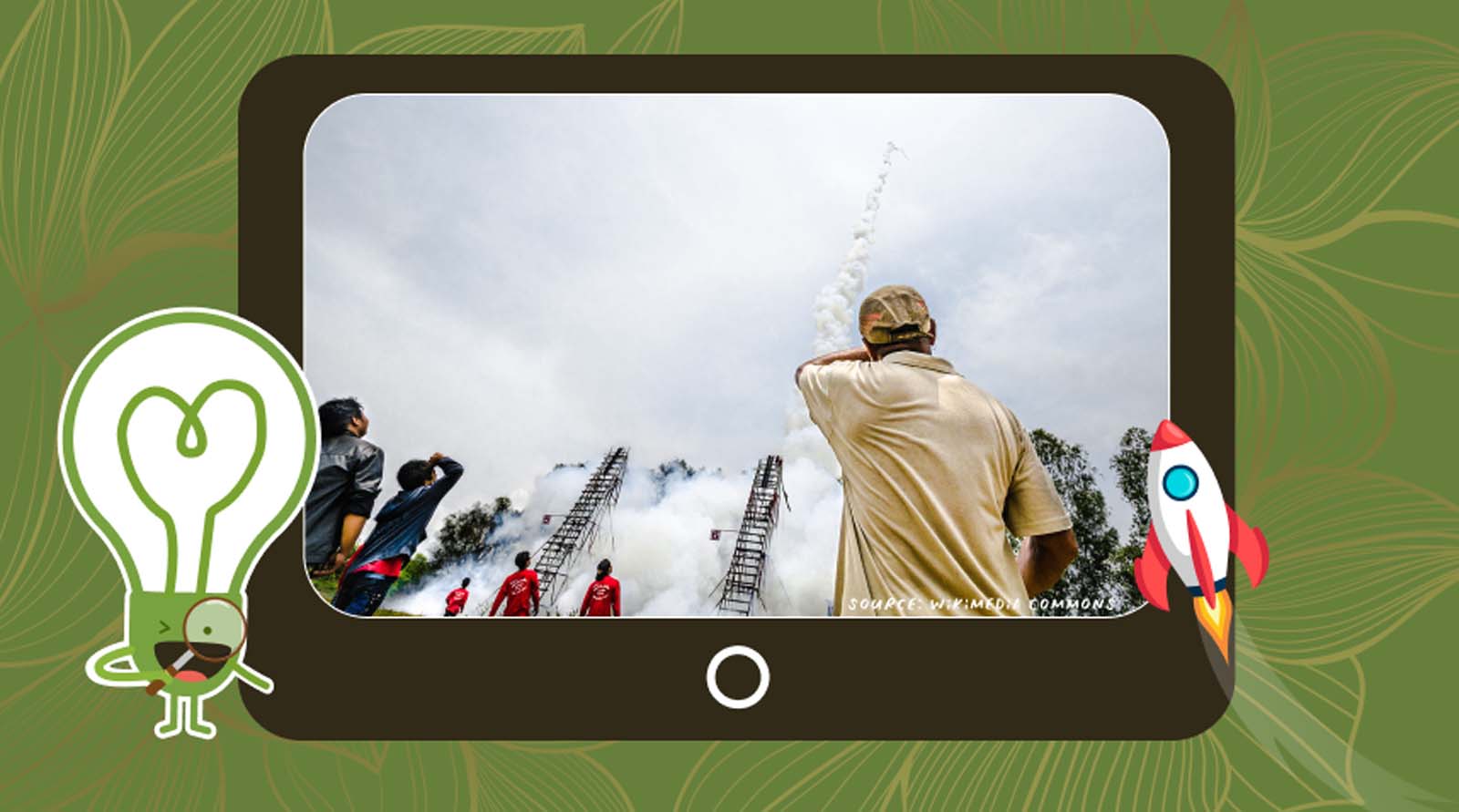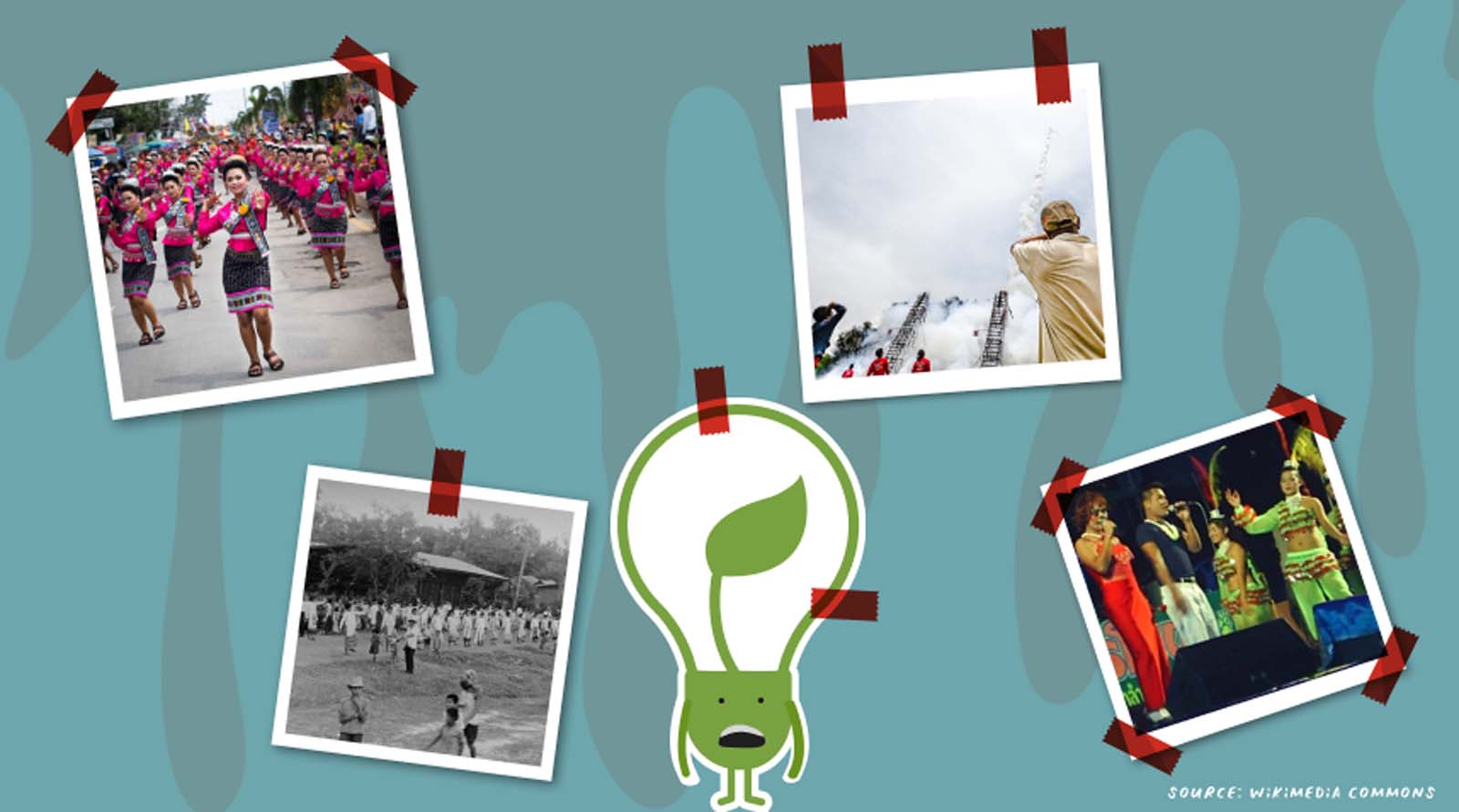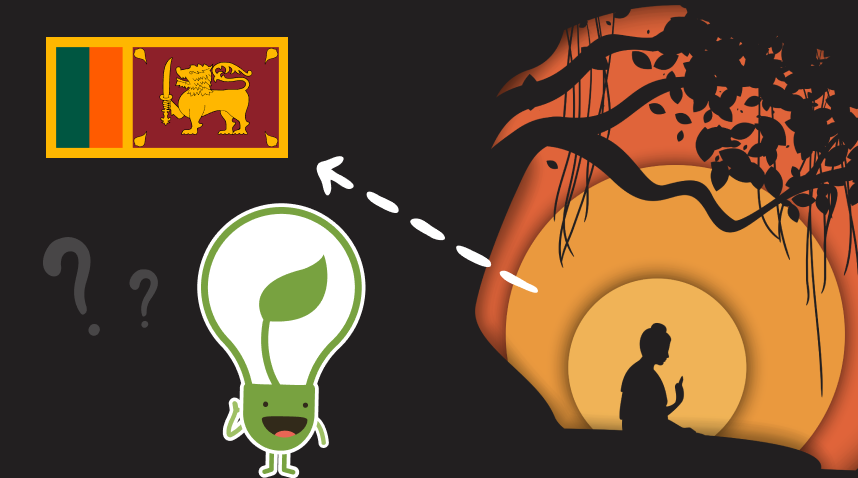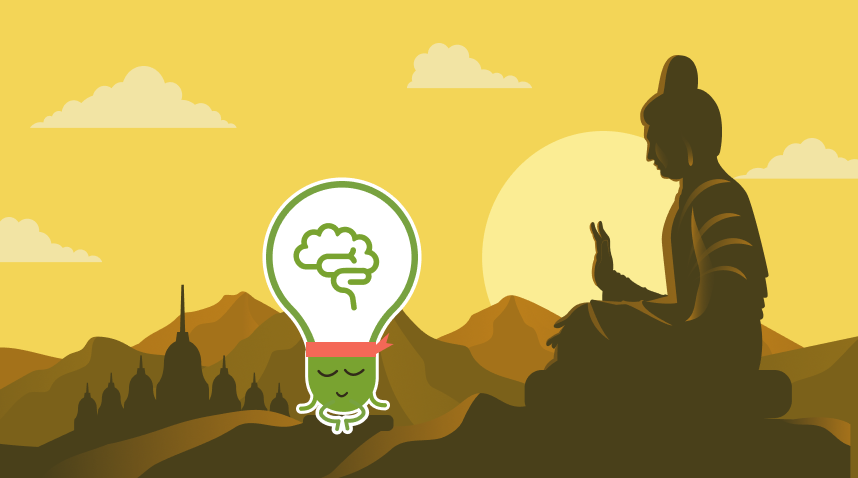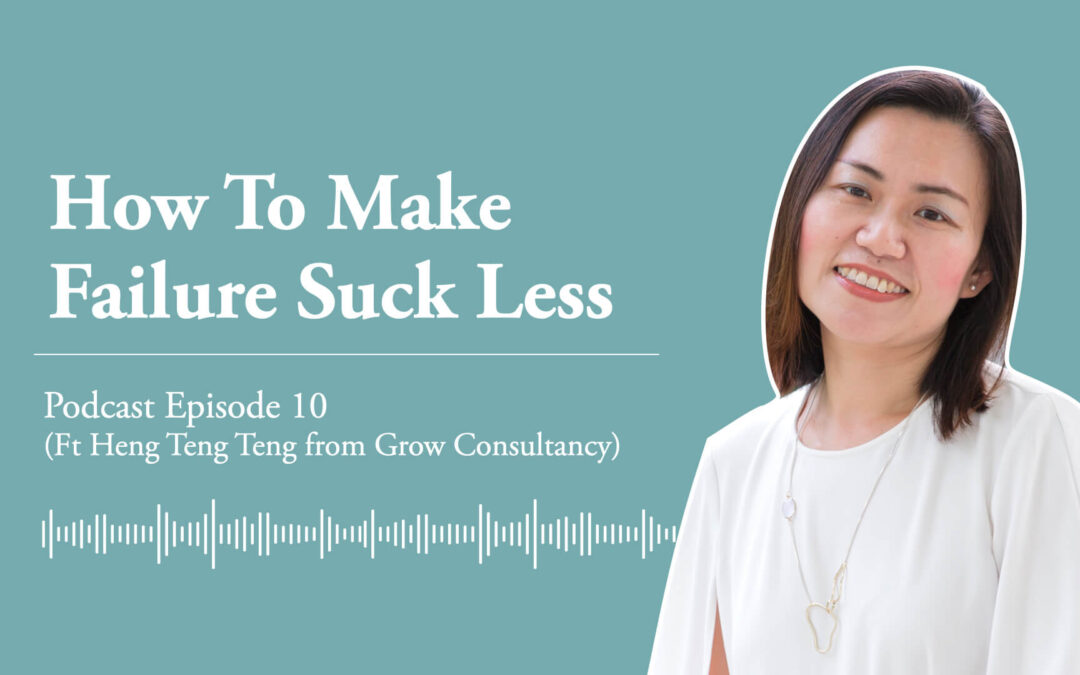
Ep 10 | How to make failure suck less (Ft Heng Teng Teng)
Kai Xin 00:02
Hey there, this is Kai Xin and you’re listening to the Handful Of Leaves Podcast, where we bring you practical Buddhist wisdom for a happier life.
Have you ever felt like you aren’t good enough? Or that you don’t measure up? Well, you’re definitely not alone. Our modern society is highly competitive. We were taught to compare since young, where parents often compare our grades with our relatives or neighbours. And our schedule was pretty much packed with tuition so that we don’t fall behind. Many of us probably got a scolding when we played a little too much. It’s the same when we become adults, isn’t it? We compare our lives with our peers, who has a more successful career, a house, a car, a loving partner, and the list goes on. Basically, we all somewhat want to live that Singaporean dream or whatever dream in the city you live in. With all that comparison, it’s definitely not a surprise that at some point, we will feel like a failure.
I’ve definitely felt like a failure in many parts of my life. And speaking from experience, the feeling sucks. And today, our guest Sis Teng Teng is here to reframe our perception of failure, so it can suck a little less. Sis Teng Teng founded her training and coaching business name Grow, to help people be more resourceful in responding to changes, and she’s certified in NLP, enneagram, and many more. She has coached leaders ranging from MDs, GMs to Regional heads from various fortune 500 companies. She has also played a pivotal role in supporting these leaders in their inner mental shifts to navigate the business challenges and demands.
In this episode, we are tapping into our expertise to also help us navigate the demands we set for ourselves in life, whether it’s at work, or whether with our spiritual practice. I really like how Sis Teng Teng asked us this one question during the interview. And that question helped us understand what we are truly searching for. And the question is: Think about a time when you really wanted something. And when you finally got it, is there a difference in how you feel? I repeat. When you finally get what you really wanted, is there a difference in how you feel?
Now you can pause this episode just to reflect a little bit before you continue. It’s really simple but highly profound. And if you’re feeling a little lost in your life right now, I hope this episode can help you gain some clarity on the path ahead. Now, let’s dive right in.
Kai Xin 03:06
Hi Sis Teng Teng. Today, Cheryl and I, are very privileged to learn from your wealth of experience. I understand that you’re in the coaching business for many, many years. Perhaps for our listeners who do not know you. Can you give a brief introduction about yourself?
Sis Teng Teng 03:19
Yes, hi, everyone. My name is Teng Teng, and I have been in human development work for the last 15 years. I started actually more in marketing before, I decided that maybe that’s really not my cup of tea and I was at a crossroads wondering what to do. And that’s where I think people come to me and start to tell me why they enjoy working with me. And that’s when I decided to move to a career dealing with people. So I did human resources, training, and eventually coaching. I’ve been doing full-time coaching for the last 10 years. Predominantly, I work with leaders, and professionals on their leadership development, and help them to kind of navigate some of these challenges that they face at work, from managing people to the conversations that they have with their staff or even for themselves. I work with them on how they actually look at some of these challenges and reframe some of these challenges that they have.
Kai Xin 04:16
I’m so happy to know that you have found your way to coaching and I’m pretty sure it’s very fulfilling. I’m also thinking of many of your coaches or your mentees when they deal with challenges, perhaps the word failure would come up quite a lot. And in the journey of wanting to succeed, people are always afraid of falling behind and failing. So to begin the podcast, I would like to hear your opinion on how you would define failure.
Sis Teng Teng 04:45
The meaning of failure evolved in different parts of my life, right. Of course, when I was younger, failure comes very much in the form of school results, whether you pass or fail- so you try something and you didn’t get what you want. That, to me, at that time is a failure. As I learned the Dhamma and as I kind of moved on in life, I began to look at failure at three different levels.
First, I can look at it as outcome-based, very performance-driven that I set up to do something, I didn’t achieve it, that is a failure. The other one, I find that it’s more helpful, for me now is to look at failure from more of a journey perspective – that I set up to do something, but I’m not there yet. So that’s where the journey of moving towards. That’s something that I begin to embrace a little bit more. The final way I look at it is more from a learning perspective, that when something happens that didn’t meet my expectation, Of course, you don’t feel good. But the reframing comes more from: ” Is there something I can learn from this experience?” And what is the muscle that I don’t have yet, that’s why it’s not meeting my expectation? The definition of failure has evolved over the years. And I find that the second which is the more journey focus and the learning focus, it’s more serving me right now.
Cheryl 05:43
Maybe you can share with us the first memory that you have, where you experience a significant moment of failure. I think that personal experience could be something that we would love to hear and learn from as well.
Sis Teng Teng 06:34
Yes, of course. There was a time when I was like in secondary school. I have two good friends, and one of them actually usually scores quite good results. And somehow, I wanted to compete with her. However, in the final exam, I didn’t meet my expectations. She was first in class, and I was third or fourth in class. I felt very bad, because I felt that no matter how hard I studied, I still could not beat her. And plus, I perceived that she did not spend more time studying than me because she has a boyfriend. She spent her time dating, and I’m so committed, I worked so hard, and I still didn’t get what I want.
So that was my first experience of failure which was a memorable experience. In that episode, I felt that life was very unfair. Why can she be so good? And why not me, even though I put in so much effort?
Sis Teng Teng 07:39
Now that I think about it, what I’m reflecting on is always this part that I feel we always have this ruler in us that we set off to measure whether I’m good enough, or whether I’ve completed or accomplished what I like to accomplish. This ruler is what I’ve been using in order to measure myself, which I think over the years, I realised it’s not very helpful.
Kai Xin 08:07
It’s interesting because I know that since young, a lot of people pick up the whole definition of failure through the education system. We’re always trying to compete to get first, and it follows us into our adult life. I’m also wondering, at which point in your life, did you realise that maybe this is not so sustainable? Or maybe there is a need to reframe that thinking? Was there a trigger point?
Sis Teng Teng 08:35
I don’t think that’s one specific one. But over the years, I think as I get a little bit more in touch with the Dhamma, the Four Noble Truths, I start to really understand where some of this feeling of incompetency, or lack, or sometimes the pain, comes from. It is really about this attachment to the ruler that we have inside us. And what we see as important, or not important, what I like or what I don’t like. There’s always this, I like this, I do more of it; I don’t like this, I do less of. That causes a lot of pain and suffering and unhappiness, on a more day-to-day basis.
So, I think it’s really important to reexamine some of this ruler that I used. Sometimes we have this inflated kind of level of happiness. When I have this then I’ll be happy, if I don’t have this, then I will not be happy. Yeah. So back to your question. There is no specific trigger, but it evolves. I feel very blessed that I am surrounded by teachers and we have friends who share the Dhamma with me, and I think that’s how I slowly get a bit of that gem out of that.
Cheryl 10:01
I think what you shared is very impactful. And it’s very prevalent in all aspects of our lives, right, like Kai Xin mentioned, from academics to everything, even sports, I think a lot of people are pressured to turn their hobbies into something successful like it must be the next hustle. And when you touch upon the word like the feeling of lack and feeling of incompetency, I think a lot of that comes from a fear mindset that, if I’m not good enough, I’m not competent enough. How would people judge me? Do you have any advice on how can we reframe our thinking from one that is fear-based to one that is more open to embracing failure as a friend or companion?
Sis Teng Teng 10:51
Maybe they’ll just ask you, Cheryl, if you were to think about a time when you wanted something so badly, right? And then now you’ve got it, like many years later, is there a difference in the feeling?
Cheryl 11:03
I can definitely show an example. So I really wanted to get promoted. And I finally got a promotion, I felt a sense of happiness, a sense of pride for maybe three days, then after that, I realised what happened immediately was basically, okay, how do I prove myself to be worthy of this promotion? it’s what’s next is the fear that still there and never left?
Sis Teng Teng 11:35
Yeah, and this is exactly what I also realised that when I think back, something that I wanted very badly bent, then I got it. For example, say I wanted to buy a house, right, and I got the house, then a few years later, when I look back at the house, there’s just another house. And I’m just thinking about that inflated level of happiness that we feel we will have when we get that thing. So it’s the same way I look at achievements, right? If I aim to be somewhere, or if I aim to get somewhere, there is a perceived level of happiness. But when I get it, maybe like, say, three days, or maybe a few months later, when I look at that, I would look at it and say, Yeah, I got it, but now it’s feeling the same. The level of happiness dropped in that sense to like normalised. When I can think like that, it helps me not to get so attached with achievements or being successful being known for this.
Sis Teng Teng 12:34
And that’s because there is this impermanence as well, that that feeling will always go away somehow. So when I can kind of remind myself in that way, that what we want and our relationship with what we want will change. Therefore, when we talk about reframing, perhaps take the longer perspective of how we view ourselves. Instead of looking at it more as an outcome, that I need to achieve this, I need to get this, I will reframe it to look into what’s our potential. If you don’t get it right now, it doesn’t define you. What is more important is your own potential. Take a longer view of our perspective, so that we don’t get caught up in one moment or one episode. That’s one way I will look at reframing. And in fact, from also a Buddhist perspective, there is really no permanent self, right? So it’s almost like seeing ourselves like a crowd, we can take many shapes, just borrowing what teacher Thich Nhat Hanh said, it’s like a cloud, you always take different shapes. And with that in mind, there’s no need to get hung up on a permanent identity.
Sis Teng Teng 13:48
When we talk about impermanence, we always see it more from a negative perspective. When things were gone, things will change. But I look at it, the gift from that is, that we can evolve. Things can change, and conditions can change. So it doesn’t always have to be static and, a status quo. When we look at it from that perspective, I think we embrace that things can change, and conditions can change. And therefore, if I don’t get it now, it doesn’t matter because things can change.
Going back to that we can evolve, we can be better. And from also from a coaching perspective, and being trained in human development, I like to look more from a growth, potential development perspective. What is it that I have not learned? What muscle am I building with this so-called failure?
The other reframing that I use on myself is to develop the quality of acceptance and self-compassion. I think that’s something that I feel when I was younger, it was a bit lacking. That’s why I was very hard on myself, using the ruler to beat myself up a lot. The quality of acceptance and self-compassion is also what meditation taught me. Because it’s like when you meditate you have wandering thoughts and you say, “No, I don’t have I don’t want to have wandering thought, I’ll suppress it.” And the more they suppress it, the more that wandering thoughts will come. I’ve learned to just say, oh, that’s wandering thoughts, notice it, accept them, and even not resist them, and to just embrace them. The whole process of acceptance from noticing, and non-resistance to just accept it, and just being aware that this is just what it is. I think that helps me a lot in embracing challenges or even failure because sometimes we struggle because we resist. And I feel when we resist, the feeling persists. Look at the feeling and see that as part of growing up. When I have this sense of non-resistance, even more, I need acceptance and compassion for myself, so that I don’t struggle as much. I feel that sense of peace, and calm in whatever challenges or failure that is, part of a long journey.
Two ways that I look at it is one is to look at it from a potential perspective, a development perspective, and a learning perspective. The other one is to look from more non-resistant acceptance and self-compassion, really.
Kai Xin 16:34
Wow, that’s so powerful. If we resist, the feeling persists. Is there a way for us to be able to differentiate, like the desire that stems from wanting to grow and reach our fullest potential versus that desire that stems from lag? So for example, just now Cheryl talked about promotion, It could be both ways, isn’t it? Like, she could see that, hey, I have done a lot, I’ve contributed a lot, there is more value that I can bring to the table if I’m in a higher rank, hence, I want a promotion. But it can also be another way where maybe it’s a form of comparison. So do you look out for the thought itself? Or is it more of like a feeling in order to know whether it stems from a constructive place?
Sis Teng Teng 17:22
I guess that depends on how self-aware, in terms of awareness, you are about your own intention, and also your own state of mind. So for me, when I have to make a decision, or when I want something, I can use thought, yeah, but I also use a lot of my body in terms of putting that decision or putting that thought in me and see where it sits in my body. I have a body sensation towards that decision or towards that particular intention. And I use that to help me understand what seeds is it cultivating. Is it more from a place of greed? Or it’s coming from a place of wanting to contribute more?
Sometimes, yes, exactly what you say, can be a very blurry line. But the important thing is when we don’t get it. Let’s say when I don’t get that promotion, how do I respond to that? I think that would be a point where we can contemplate our feelings of disappointment. Where does the disappointment come from? Perhaps the disappointment comes because I’m attached to wanting to be better than my colleague. That’s why I’m disappointed that I’m not getting it because other colleagues are being recognised and not me, I’m attached to that wanting to be better than other people. Or, I’m upset I don’t get it because it means that I cannot grow in a position.
So I’m attached to growth because attachment to growth can also be suffering. Wanting to grow, to do more, to fulfil your potential, that itself is an attachment. It’s almost like attaching to wanting to be useful all the time. Notice where do that discomfort, displeasure, and unhappiness come from? Especially during instances when I feel that I failed, or I feel that I’m not happy with something or with the outcome, I will use that to look into where the attachment come from.
Kai Xin 19:35
Yeah, definitely useful. So be in tune with your body. And I think just constantly reflecting on where is the attachment. Yeah, I think it’s a constant journey of learning.
Sis Teng Teng 19:49
Sometimes I think we may not be aware of our own attachment. Yeah, the attachment may not necessarily be something that’s very obvious to us. I think that contemplation and reflection, and just noticing how this particular thing sits in my body gives me a clue on what am I attaching to. So for example, I do workshops, I do coaching, and it’s normal that participants will give feedback. When you see very good feedback, you feel very happy. And then I was like, hey, where does this happy feeling sit with me right now. It makes me feel this very high feeling, and that is a moment that I noticed, I am attaching to that high feeling or vice versa. When I get negative feedback, my heart has dropped. And then I start to notice, where is it in my body, this is the moment where I know I’m attaching to good feedback. And that’s how my body experienced that disappointment. So that’s how I used the body sensation to give me more data.
Cheryl 21:00
I’m just going to jump in here and maybe tap on that, you were sharing, for example, you were attaching to the good feedback. And of course, you dislike the negative feedback that comes after you run a workshop. What are some of the attachments or views that you have of yourself? And how can you make it healthy in a way that could help you to grow into a better coach or trainer?
Sis Teng Teng 21:31
Broadly, I’ll look into what I’m attracted to, and what I am avoiding. One of them is attaching myself to look good in that sense. it’s like you’d like to sound good. I like to see that I train well. I like to perform well. So that’s the attachment to looking good and being good.
Now, of course, we’re not saying this is bad, because you need to strive to deliver good stuff to people. It is fuel for me to do good preparation to make sure that I know my participants. Well, that’s my expertise in that sense (So as to honour that now). But when I overplay it, that is when it gets into the limiting beliefs of myself. So when one participant says not good, then I start to beat myself, I start to say, maybe next time I don’t do it anymore; this is not my cup of tea, I start to go into that route of giving up or feeling that it’s not fair, I did so much, but they don’t appreciate it.
When you say that, balance is to notice when you get into a bit more unwholesome state of mind. Your intention is good because you want to do well, and you want to deliver a piece of work. That is really good for the participants. But when you get too attached to that, you may get into the other side of either critic yourself or criticising the participants, because they do not meet expectations. And that’s where I think, the unwholesome state arises. That’s where I catch myself then say, I’m losing that balance. And I’m losing too much of that, wanting to do well, so much so that I start to feel upset, I start to feel frustrated, or I start to feel that there’s no point. So that’s how I balance it. Just in our state of mind.
Kai Xin 23:39
Wow, that reminds me of the Dhammapada quote, just like a solid rock, not shaken by stone, even so the wise is not affected by praise and blame. And you mentioned the word balanced, it’s so important. You also talked a little bit about sometimes just wanting to give up and wanting to give in. But it might not necessarily be a bad thing sometimes, isn’t it? Because I think the whole concept of giving up can seem very negative. And I know of a lot of people who are actually just sticking through with what they’re doing, just because they don’t want to seem like a failure. So I mean, imagine for yourself, you started off for marketing, there must be some point in time where you feel like this is not really my cup of tea and taking that leap of faith to then transition into training is so courageous. Could you maybe share with us a little bit on the the concept of giving up and when we should actually have the courage to quit?
Sis Teng Teng 24:40
Yeah, when I was I was doing adjunct lecturing for eight years. That is when I first started to get a bit more steady income. I felt so happy about it and was very enthusiastic. So the first five years I was doing with full energy. I really like it. And the students were great. However, on my sixth year, I started to feel a bit bored about the modules, because I’ve been teaching the same module but just a different cohort. And of course, the feeling of maybe I should stop. But anyway, if I stopped, then what if I don’t have a steady income, so I tried to ignore the fear. But I’m really not quite enjoying it as much as I did when I first started. So there’s always this dilemma of should, should not, but I did not quit immediately, because I saw that at that moment, it was a lot more unhappiness with something. That’s why it pushes me to think about something else. I waited for another two years to really think through whether I Should just give up and pursue a different thing or different work. And now that I look back, I felt good about it. Because if I would have made that decision to quit in my fifth year, I think my state of mind is a little bit more, “I don’t want, I want this, and I think it’s very messy. I wasn’t clear.” You’re just very messy and unhappy about certain things. I think that’s where I use what I learned in meditation, that when the state of mind is unclear, pretty messy, and I will not make a good decision. The quality of thinking and the quality of decision will not be good. So I hold on to my decision for another two years, when I started to notice what would still excite my heart again.
Sis Teng Teng 26:41
And the question I asked actually, was, what are the seeds that I want to cultivate? What is the qualities that I can cultivate even deeper, If I have a new piece of work, what does it look like that can help me to cultivate a certain quality or seeds, that I may be missing in doing adjunct lecturing. When I think back, I think when I decided to quit, my state of mind was gratitude that the school has given me a full, almost seven years of steady income. And I have very good students, I have very good support from the school. So I’m looking at that, as from a very thankful, very grateful state, and moving on to another state where I feel that I can continue to grow, and I continue to cultivate, the qualities and the seeds that I want to cultivate. When I make that decision, I feel my state is a lot more steady, a lot clearer. So back to the question that you asked me because sometimes when we are in this challenging situation, we will want to say let us quit and move on to another thing. But I think that’s what sets us into that grasping because we want to escape from something. So what I then suggest is to perhaps pause and to see and to be aware of our state of mind: is it calm? Is it where you’re not pushing or pulling? And if you have a bit of that balance, I think maybe that’s how we can make better decisions for ourselves to decide whether to move on or to let go.
Cheryl 28:23
That was a very powerful sharing. You started with a very binary kind of thinking, Where it’s a ‘should or should not’. ‘ yes or no.’ But I think through your reflections and through your meditations, how you evolved was really into pausing and allowing the answers to come from a place of curiosity. This is something that I recently read on a book like looking into the middle way or the middle path, which is allowing ourselves to unfold into the experience of the present moment and taking note and observing, what information can we glean from that present experience?
So if it is a space of unhappiness, question yourself, how can you turn that into a space of gratitude. Because that is the kind of attitude that you will bring into the next place as well. And if you bring with you a sense of aversion, your next place will not be great. I think that a lot of your views of life is very influenced by your meditation practice. Let’s shift gears into more on the spiritual practice side, the practice of meditation, the practice of the Buddhist path. Would you be able to share some of the significant moments of challenges or failures that you experienced?
Sis Teng Teng 29:55
I won’t say failures that I encountered in my future practice. But I remember a time when I don’t feel excited to meditate. I don’t look forward to meditating. When I have a meditation, especially when you go for some Dharma events, and I feel the reluctance to meditate. That was eight years ago, I have an experience of that. It was a time when I feel very lonely in the practice. And I still remember, even before that, when I first encountered Buddhism, in my uni days that was with the NUS Buddhist Society. The first few years are quite nice to learn new things. It’s only after that that I have my first child, I find it very lonely, I find that there are a lot of challenges, that I need to figure out myself, and I feel nobody around me to help me. So it’s almost like you need to figure it out yourself. You need to just follow what the Buddha says, the Four Noble Truths, then keep telling yourself life is suffering, the suffering is like that. It’s like that. So I felt very helpless. And I even feel that I’m not loved at all. There’s no love in this practice in that sense. So that was a moment I felt when I lost the joy in learning the Dharma. But I have never thought about giving up. I just know that I may not have figured things out well. So that’s a moment where I really just feel that let us stop maybe for a while because I don’t feel that I’m encouraged or inspired to go forward.
Cheryl 31:38
You mentioned something very interesting, which is that you didn’t feel love. Could you tell us a little bit more about that?
Sis Teng Teng 31:47
Okay, maybe because of my introverted nature, So I don’t have a lot of friends. At that time. I don’t know you’re SBM. Anyways, friends, they have their family, everybody’s busy with their work and family. And of course, I have a very good husband, we talk but I think this is one person. And then being very introverted in nature, that’s less of me seeking out help. So I’ll read books, listen to audios. But this is so much. And because the kids are very, very young, my daughter’s a baby, so I don’t go out very often. Because it’s not easy to find food. And there’s a lot of things I have to do alone. So that’s where I feel I’m not connected with the community. I don’t feel connected with my past spiritual friends. I don’t feel supported. I don’t feel loved. And I think maybe during that time, there’s always this big perception that I have, this myth that I’m holding that this religion is all about pain and suffering. Maybe I haven’t gotten in touch with the word compassion as much yet at that time. So the takeaway perception is always about pain and suffering.
Kai Xin 33:05
That’s so important that you share this experience because I’m sure you’re not the only one. There are points in my practice where I feel stuck as well. And the funny thing is, I know there are communities out there, it’s just I’m also quite introverted, So the inertia of wanting to reach out, or maybe even a sense of not good enough, like while my practice is not so good, if I go there abit shameful, or I’m not in the right place. Yeah, I’m just wondering, from your own personal experience, do you feel more love right now? Can you share it with us? How do you walk from that point on?
Sis Teng Teng 33:45
I think that’s where I find a lot of help and support from meditation. Because I started to learn a bit more. And of course, from there, I started to get a little bit more into retreats and to listen to different talks by Venerable, that’s why I get a better or a shift in how I approach meditation. And now that I think back, one of the things that I started to do is to surround myself with people who are better than me, because I used to fear that. You may feel embarrassed, that you don’t know this, you don’t know that sutta, and then you go out and people talk about it, and you don’t understand. And if I ask a question, I worry it sounds very basic. So there’s this fear again, of not looking good enough. So that holds me back from learning the Dharma. Now I think differently, and because they know more, when I have a challenge, I go to them. And that’s where I think the advice they’re sharing helps a lot.
Sis Teng Teng 34:48
One of the things that I thought I would love to know earlier is to surround myself with people who are better than me. Surround myself with teachers, with friends. And there are actually more people who is more than willing to help you than you think. Because I used to think that people are not as helpful. But that’s a myth. I think people are much more helpful than what we think. But it’s just for me to take a step to ask for help, and then you feel that you are very well supported. So that’s my learning to really surround myself with people who are actually even better than me. That’s how I can progress.
Kai Xin 35:26
This seems quite similar to what you said earlier on. So it’s about letting go that attachment. Because asking for help, can seem like oh, we’re not good enough. But it can also be otherwise, where we’re asking for help, so that we have the potential to grow. Thanks a lot for sharing that perspective.
Sis Teng Teng 35:45
Yeah, and the other thing I also learned is- this is my own litmus test for myself that when I feel I’m not getting that joy in my practice, then I think I’m pushing myself a bit too hard, like feedback for my own practice that if I’m not experiencing joy and this peace of mind, as I meditate, or as I read the books or as I practice the path, I think I may have set myself some unrealistic expectation, like an expectation I need to be at somewhere, I need to know something, I need to be seen as very spiritual, the kind of cultivator that comes back into the ruler that I have. And that will actually stop me from finding joy. And having that allows, you to just meet me as where I am. So that’s another way how I would get feedback on my own practice, that I’m not getting joy.
Cheryl 36:43
The path itself is very challenging and filled with a lot of emotions as we try to progress into a more wholesome state. Would you have any advice that you can share to our listeners here who might be struggling on the path?
Sis Teng Teng 37:01
I don’t know whether this is considered advice, but I’m just curious, what do you do when you’re stuck? Just to see whether what I’m thinking about is what is working for both of you.
Cheryl 37:16
I think when I feel stuck, I would just drop it for a moment and go and distract myself with other things. So then, when I don’t work too hard on it, the answer comes, so I stopped seeking for a solution when I feel stuck.
Kai Xin 37:34
Same I binge-watch a lot of YouTube videos, I just go down the rabbit hole I’ll eat and very unhealthy food. I think to the point where I feel that while I’m, I’m so stupid, and I have like hit the rock bottom. And okay, get out. It’s like when I understand the first noble truth, yeah, then I will feel very ashamed of myself, then I’ll pull myself back up again. Yeah, but depends on the capacity and the clarity of mind, really.
Sis Teng Teng 38:01
So you’re just more like the awareness that hit and then you can bounce back and just to remind yourself. So, that’s what I do more from an internal perspective like that reflection. And just noticing, like, for me, what am I resisting? What am I struggling with? So just use meditation as an example: When the wandering thoughts come, if I don’t want wandering thought, it will come again, so is that what am I resisting here? And what am I not accepting? So that’s more the internal reflection that I have to remind myself of. Now, the external, which I will then use is now I make an intention to surround myself. Like I said, surround myself with people who are better than me. So I have chat groups that not necessarily I chat with a lot, but they are a chat groups that I value. And I always get into the chat group to ask questions. So, it’s more spiritual friendship. That’s more external. And also I will have a podcast, I will have books around me, even in my office, I have one or two very small books that I can access. I need to assess this teacher’s wisdom. To help me when I’m being very critical about myself. So I will use them to inspire myself so that I don’t get down but they are more like a support for me more from a day-to-day basis, because I do need inspiration. I have to be realistic and also honest with myself. That’s where I am right now is just the beginning of the path. And the more I can reach out for help, the more I can access different wisdom, I think the more I will enjoy the journey. So I don’t have to be too hard on myself, I don’t have to figure out things for myself. I just need to ask for help.
Kai Xin 40:14
Definitely. And we can feel a lot less lonely. With just set thought and with the internet, helpful information is everywhere. And that’s a very positive note to the end of the podcast, actually. And to formally wrap up, I would just like to ask Cheryl, what’s your biggest takeaway from this conversation?
Cheryl 40:34
I think my biggest takeaway here is taking note of the inflated levels of happiness that you expect from certain outcomes. And I think that is very powerful. Because a lot of times the ruler that you mentioned, has no basis, it promises a certain kind of happiness, but it’s really just three days long, or maybe a week, if you’re lucky. And the second thing is that, a lot of our struggles, we don’t have to face it alone, be brave to surround ourselves with people that are better with us. And more often than not, they’re always someone who is very willing to help as long as we have the courage to ask for help.
Kai Xin 41:17
I would like to add on to the list. I think it’s so important that we measure our progress based on joy. And how we do that, it’s by really being in touch with our body, our emotion. And don’t act on anything on an impulse, whether you want to quit or whether you want to pursue certain thing, let it sit for a while and really question our intention, and it has to come from a place of stability as well. So that’s something I took away, which I’m going to start reflecting on on a regular basis. So thanks a lot sister Ting Ting, are there any last words you want to say to our audience? And where can they find you and your work, if they want to?
Sis Teng Teng 41:58
My wrap-up message, is we are trying our best. At that moment when you thought you have failed, just bear in mind that you have tried whatever you could. And it is always a journey. And we evolved. So that’s where we don’t have to be too hard on ourselves. Go back to the wholesome state where you plant your seeds of compassion, you plant your seed of wisdom, and then you continue the path.
Kai Xin 42:27
Thank you, if they want to find out a little bit more about what you do. Where can they go?
Sis Teng Teng 42:32
You can google Grow consultancy, yeah, or you can just type my name Heng, Teng Ting, and then you can find me on LinkedIn, and then we can connect over LinkedIn. Thank you.
Kai Xin 42:46
Before we formally end this episode, I like to invite you to do this simple exercise with me. Wherever you are, take a deep breath and repeat this phrase three times. I am enough. I am enough. I am enough.
Yes, if no one has already told you this, you are enough. You may not be perfect, but hey, you’re trying to be better. And that’s enough. May your ruler always be measured against how adequate you feel within rather than what’s on the outside and may you find joy in whatever you do in life. I hope this episode has brought you some clarity. And if you’ve benefited from this, please do remember to pay it forward by sharing with your friends and you can also give us a five-star review on Spotify. It helps the algorithm and can allow us to reach more people as well. Till the next episode, may you stay happy and wise!



